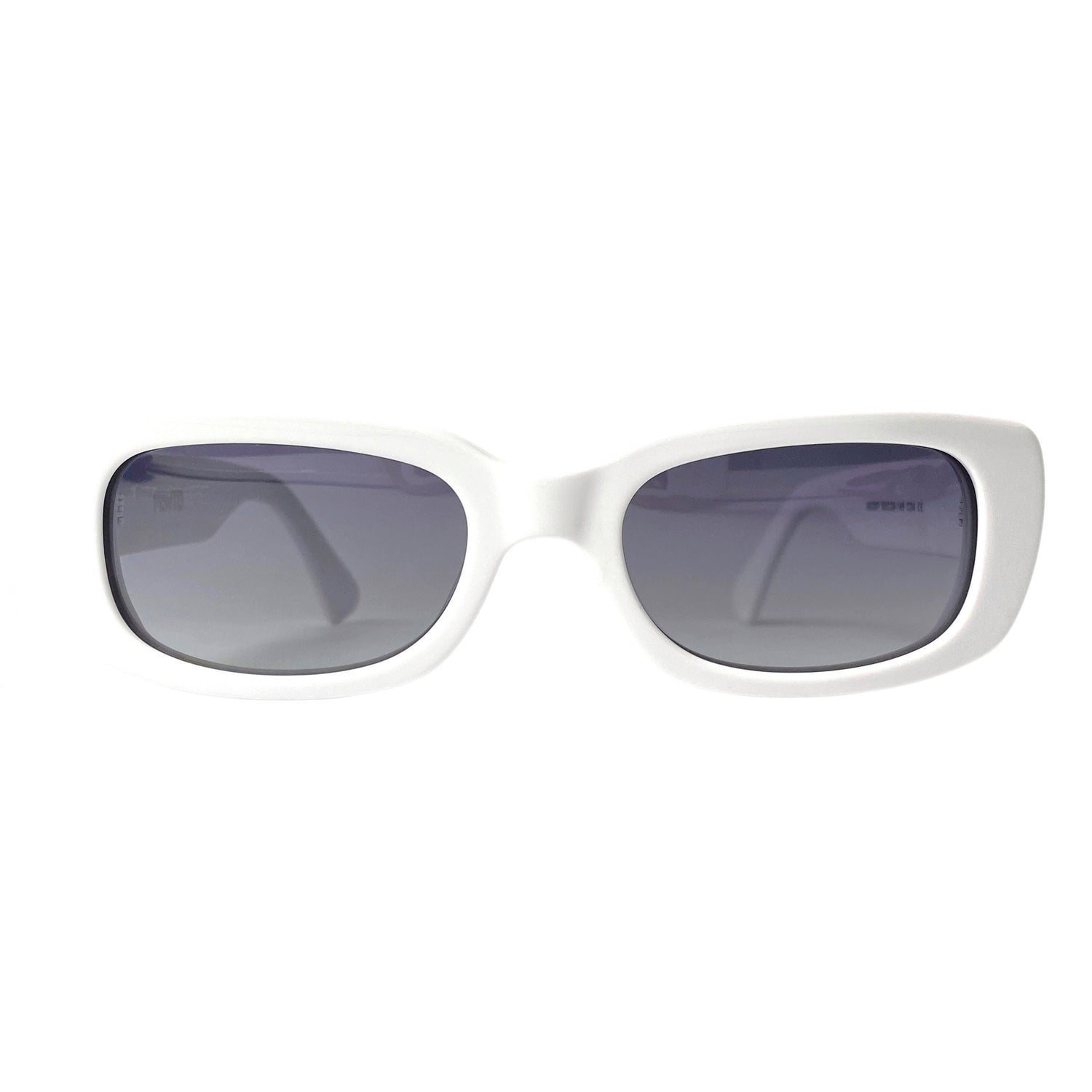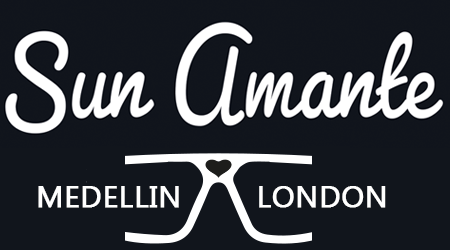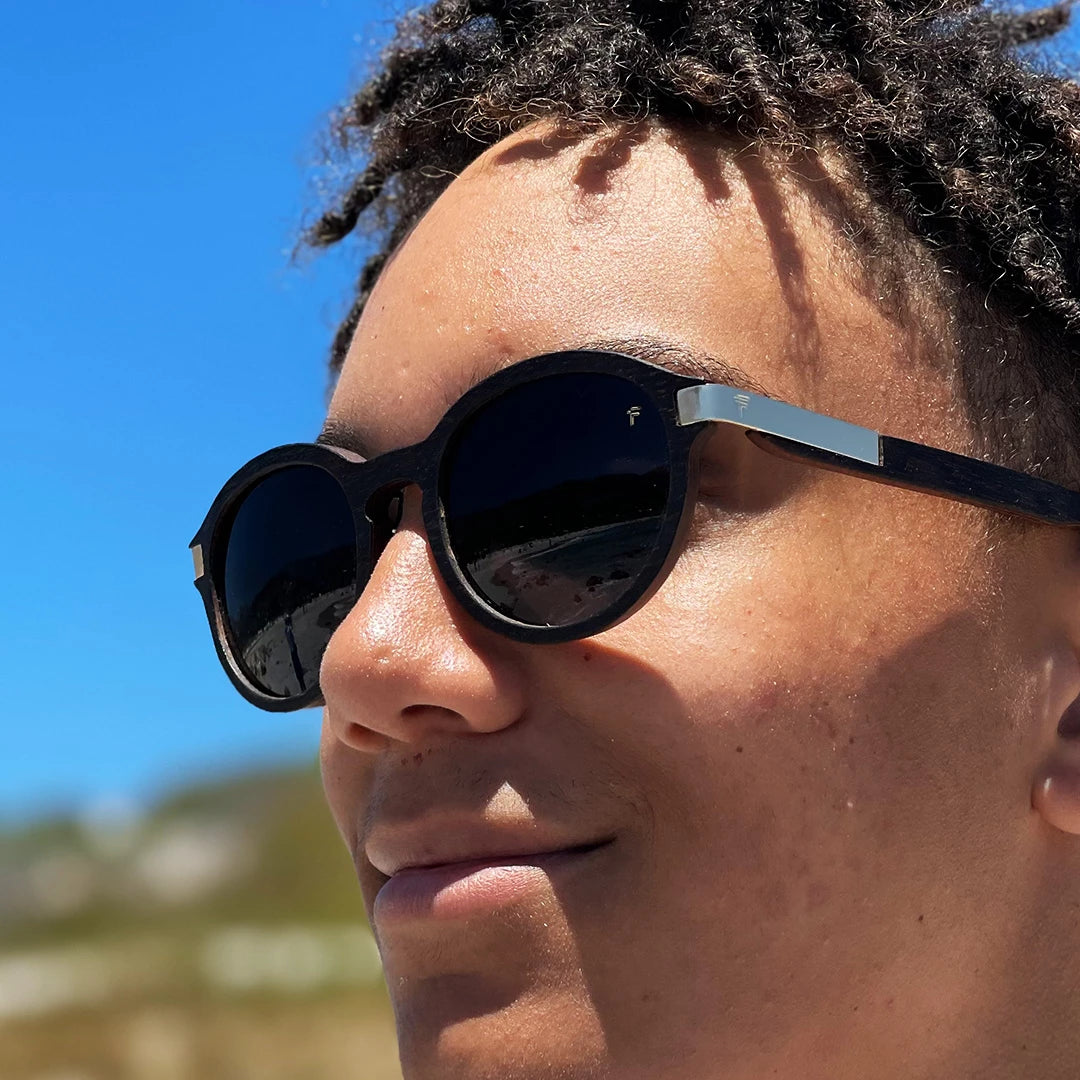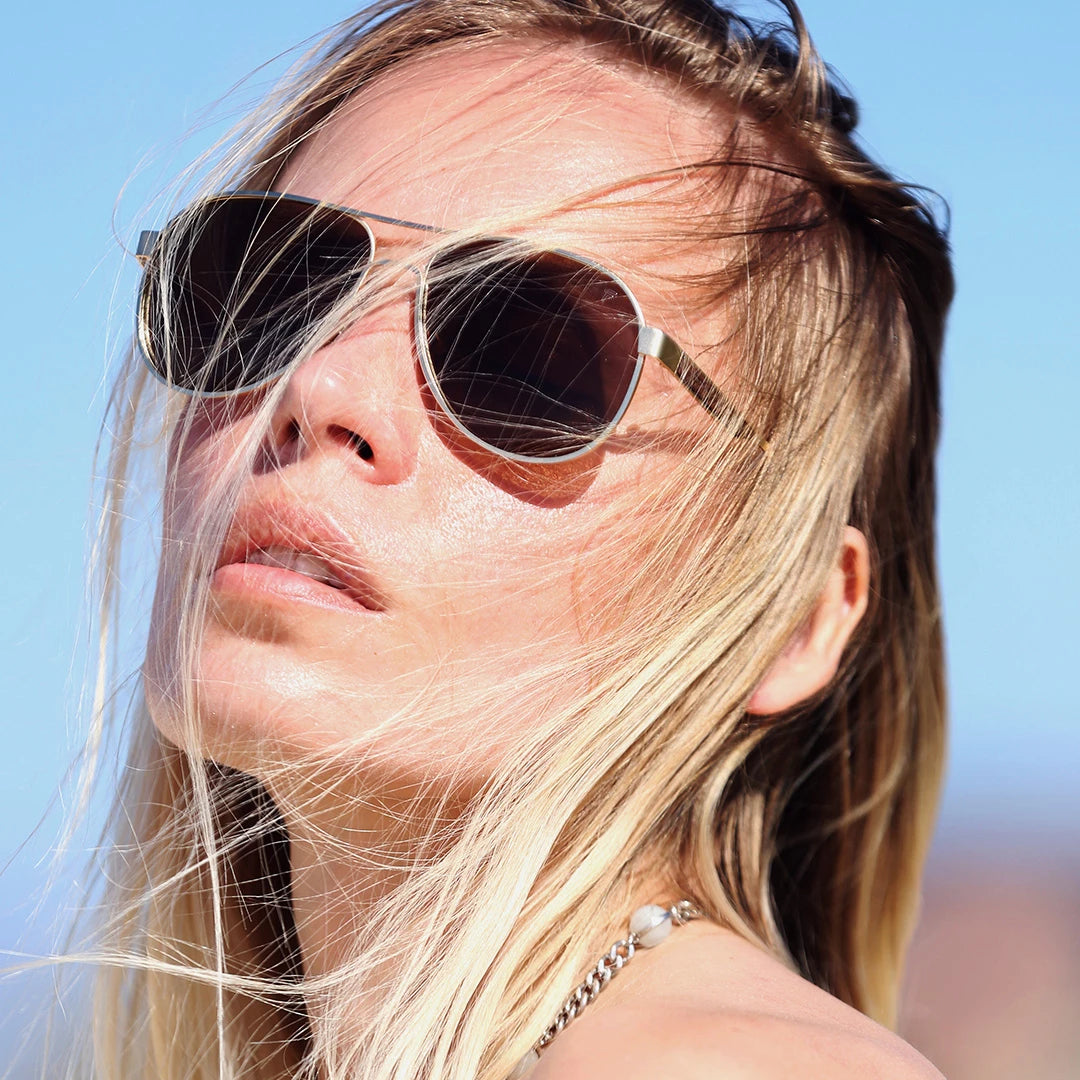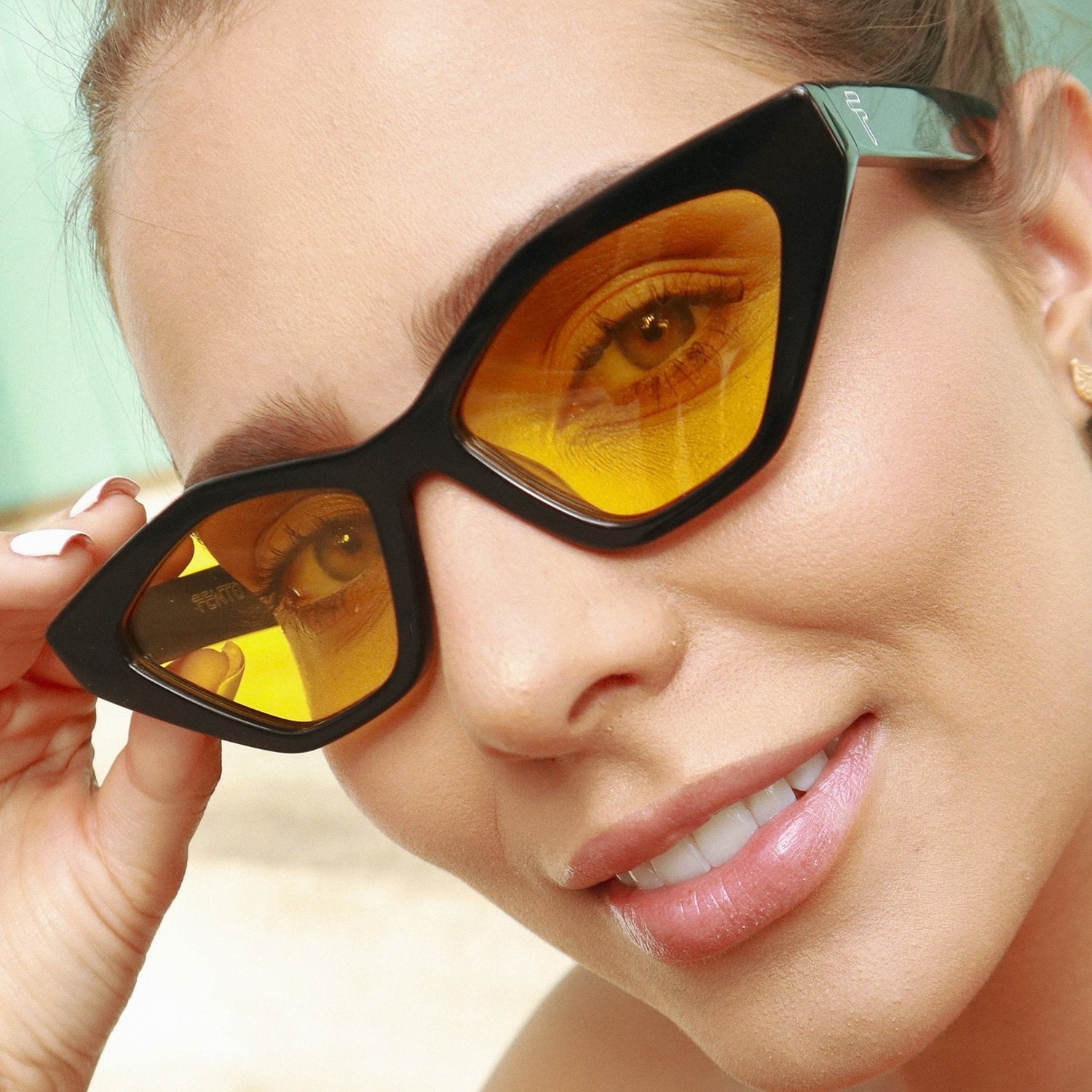Summer is a time for outdoor activities, but it's also a time when the sun shines brightly and poses a risk to our eyes. Just like we protect our skin from harmful UV rays, it's equally important to consider protecting our eyes from the sun's damaging effects. In this article, we will discuss the importance of eye sun protection, the different types of sun protection available for eyes, how to choose the right sunglasses, and provide some tips for maintaining overall eye health in the sun.
Understanding the importance of eye sun protection
When we think of sun protection, we often focus on shielding our skin with sunscreen. However, it's essential not to overlook the health of our eyes. Exposure to ultraviolet (UV) radiation can lead to various eye conditions over time, including cataracts, macular degeneration, and photokeratitis (sunburn of the eyes).
Did you know that the skin around our eyes is thinner and more delicate compared to the rest of our face? This makes it even more susceptible to the harmful effects of UV radiation. The sun's rays can penetrate through our eyelids and reach the sensitive tissues within our eyes, causing damage that may not be immediately noticeable.
Now, let's delve deeper into the harmful effects of UV radiation on the eyes. UV radiation can cause long-term damage to the eyes' delicate tissues. Prolonged exposure to UV radiation increases the risk of cataracts, a clouding of the eye's lens that affects vision. Cataracts can develop gradually over time, impairing our ability to see clearly and perform daily tasks with ease.
Macular degeneration, another eye condition associated with UV exposure, is a leading cause of vision loss in older adults. This condition affects the macula, a small area in the centre of the retina responsible for sharp, central vision. Over time, exposure to UV radiation can contribute to the degeneration of the macula, leading to the gradual loss of central vision.
Moreover, UV radiation can cause sunburn on the surface of the eyes, resulting in redness, irritation, and discomfort. Just like sunburn on our skin, sunburned eyes can be painful and may require time to heal. It's important to remember that our eyes are not immune to the damaging effects of the sun.
The link between sunlight exposure and eye conditions
Studies have shown that long-term exposure to sunlight, especially during peak hours when UV radiation is strongest (between 10 a.m. and 4 p.m.), is associated with an increased risk of developing eye conditions like cataracts and macular degeneration. The cumulative effect of years of sun exposure can take a toll on our eyes, making it crucial to protect them from the sun's harmful rays.
So, how can we protect our eyes from UV radiation? Wearing sunglasses that block 100% of both UVA and UVB rays is a great place to start. Look for sunglasses labelled with UV400 or those that provide 100% UV protection. Additionally, wearing a wide-brimmed hat can provide extra shade and further shield our eyes from direct sunlight.
Remember, eye sun protection is not just for sunny days at the beach. UV radiation can still reach our eyes on cloudy or overcast days, so it's important to make sun protection a daily habit. By taking proactive measures to protect our eyes from the sun, we can reduce the risk of developing eye conditions and maintain good eye health for years to come.
Different types of sun protection for eyes
Protecting our eyes from the sun doesn't mean compromising on style or comfort. There are several options available to shield our eyes effectively. These include sunglasses, sun hats and visors, UV-blocking contact lenses, and even some lesser-known methods.
Sunglasses: More than just a fashion accessory
Sunglasses are not just a fashion statement; they play a vital role in protecting our eyes from harmful UV radiation. When selecting sunglasses, look for ones that offer 100% UV protection. Additionally, consider sunglasses with polarized lenses, as they reduce glare and provide better vision clarity. Sunglasses with wraparound frames offer better peripheral protection, minimizing the entry of UV rays from the sides.
Did you know that sunglasses can also help prevent certain eye conditions? Prolonged exposure to UV rays can increase the risk of cataracts and macular degeneration. By wearing sunglasses, you can reduce the likelihood of developing these conditions and maintain good eye health.
Furthermore, sunglasses can be a great accessory for outdoor activities. Whether you're going for a leisurely walk, playing sports, or lounging by the pool, sunglasses can enhance your visual comfort and make your experience more enjoyable.
Sun hats and visors: An additional layer of protection
Wearing a wide-brimmed hat or visor can provide additional sun protection for our eyes. These accessories create a physical barrier between our eyes and the sun, blocking direct sunlight and reducing UV exposure. When choosing a hat or visor, opt for one with a brim wide enough to shade your face and eyes adequately.
Aside from protecting your eyes, sun hats and visors can also shield your face and scalp from the sun's harmful rays. This can help prevent sunburns and reduce the risk of skin cancer. So, not only are you taking care of your eyes, but you're also promoting overall sun safety.
When it comes to style, sun hats and visors offer a wide range of options. From floppy hats to trendy caps, you can find a design that suits your personal style and complements your outfit. So, why not make a fashion statement while protecting your eyes?
UV-blocking contact lenses: Invisible but effective
If you require vision correction, UV-blocking contact lenses are a convenient option for protecting your eyes from the sun. These lenses not only correct your vision but also block harmful UV rays from reaching the surface of your eyes. Talk to your optometrist about the availability of UV-blocking contact lenses and whether they are suitable for your specific needs.
Did you know that UV rays can also harm the delicate skin around your eyes? By wearing UV-blocking contact lenses, you're not only safeguarding your eyes but also providing extra protection to the surrounding areas. This can help prevent premature aging and reduce the risk of skin cancer.
UV-blocking contact lenses come in various types, including daily disposables, monthly disposables, and extended wear lenses. Your optometrist can guide you in choosing the right type based on your lifestyle and visual needs.
Remember, while UV-blocking contact lenses offer excellent protection, they should not be considered a standalone solution. Pairing them with sunglasses or a hat can provide comprehensive sun protection for your eyes.
Now that you are aware of the different types of sun protection for your eyes, you can make informed choices to keep your eyes safe from the sun's harmful rays. Whether it's through stylish sunglasses, fashionable sun hats, or the convenience of UV-blocking contact lenses, prioritize your eye health and enjoy the outdoors with confidence!
How to choose the right sunglasses
With countless sunglasses options available, selecting the right pair can be overwhelming. To ensure you're making an informed choice, consider the following factors.
Decoding UV protection labels
When purchasing sunglasses, check for labels or stickers indicating 100% UV protection or UV400 protection. These labels ensure that the sunglasses block both UVA and UVB rays, offering maximum sun protection for your eyes.
The role of lens colour and tint in sun protection
The colour and tint of sunglasses lenses can affect how much visible light reaches your eyes and how well you perceive colours. Darker tints, such as grey and brown, are effective in reducing brightness but may alter colour perception. Conversely, lighter tints, like yellow or rose, provide better contrast but less protection from bright sunlight. Consider your needs and preferences when choosing the lens colour and tint that work best for you.
Frame size and shape: Why it matters
The size and shape of sunglasses frames not only affect your style but also your level of eye protection. Larger frames with a wraparound design provide more coverage, protect your eyes from sunlight entering from the sides, and reduce the risk of UV radiation reaching your eyes. Additionally, ensure that the sunglasses fit securely and comfortably to prevent UV rays from entering through the gaps.
Tips for maintaining eye health in the sun
Besides wearing appropriate sun protection for your eyes, there are additional steps you can take to maintain overall eye health while enjoying the outdoors.
Regular eye check-ups: A proactive approach
Schedule regular eye examinations with an optometrist to monitor any changes in your vision and discuss any concerns you may have. Routine check-ups can help detect any early signs of eye conditions and allow for timely intervention.
Lifestyle changes for better eye health
Adopt a healthy lifestyle that promotes good eye health. Eat a balanced diet rich in fruits and vegetables, particularly those containing essential nutrients like vitamins C and E, zinc, and omega-3 fatty acids. Stay hydrated, protect your eyes from smoke and pollutants, and take breaks from digital devices to reduce eye strain.
When to seek professional advice
If you experience persistent eye discomfort, changes in vision, or any unusual symptoms following sun exposure, it is essential to seek professional advice from an eye care specialist. These symptoms could be indicative of a more severe eye condition that requires immediate attention.
Remember, your eyes are irreplaceable, and protecting them from the sun's harmful rays is crucial for maintaining good eye health throughout your life. By understanding the importance of eye sun protection, choosing the right sun protection for your eyes, and making positive lifestyle choices, you can enjoy the outdoors while keeping your eyes safe and healthy.
